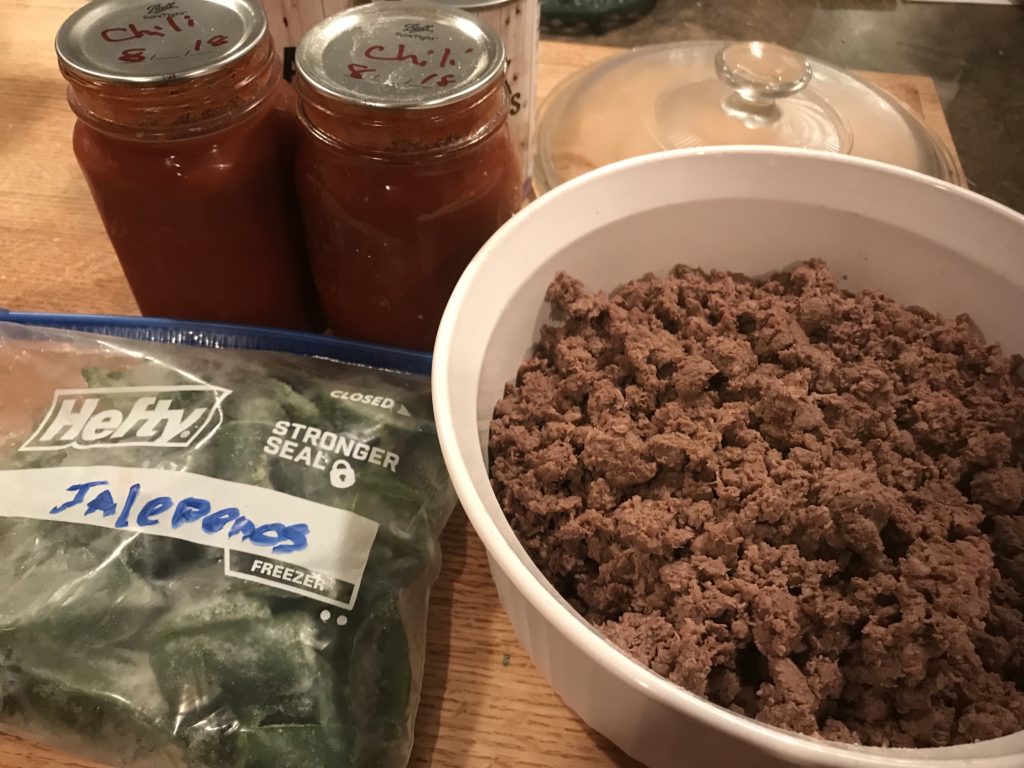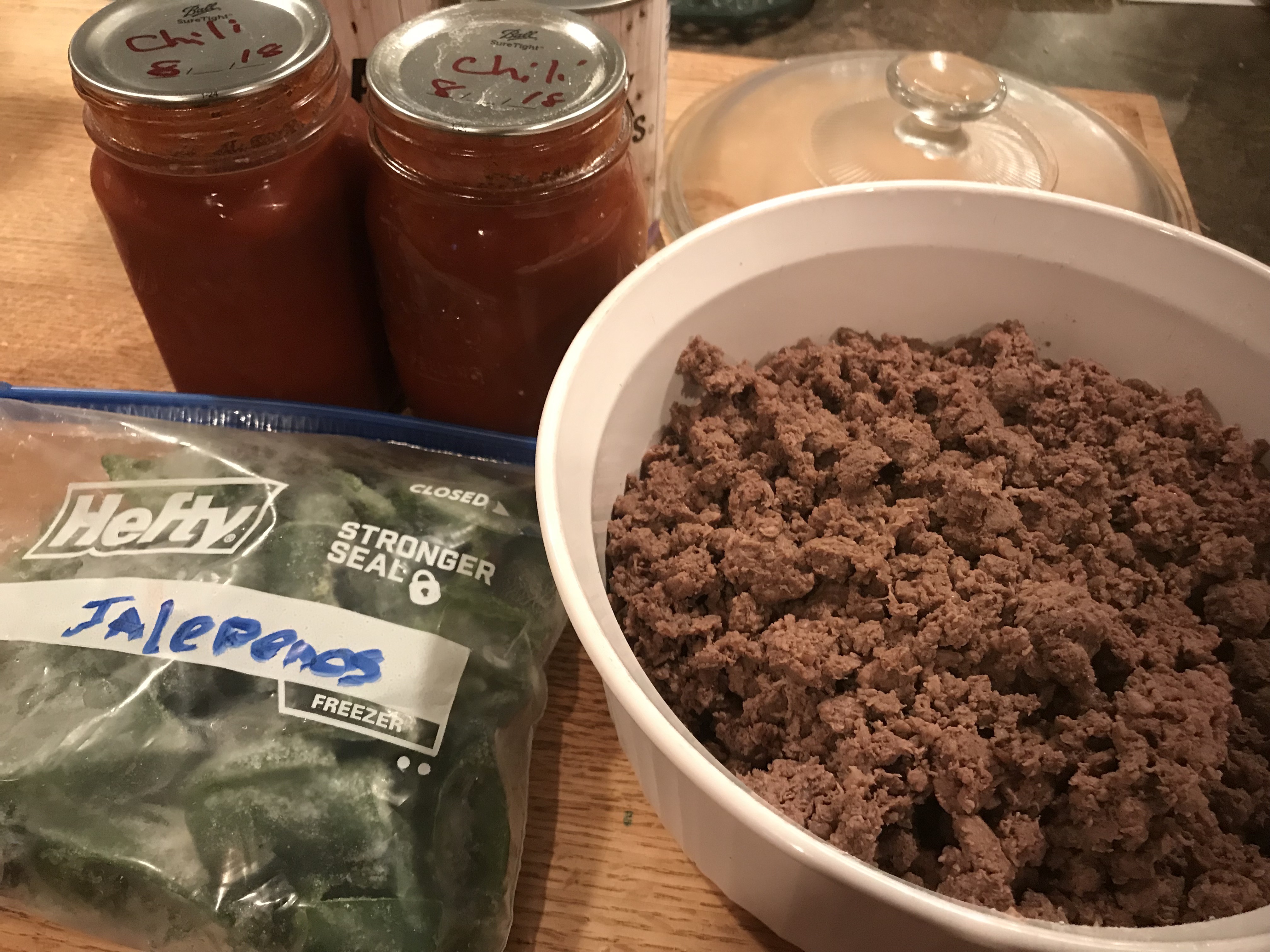Venison is super healthy because it is practically fat-free and is low in cholesterol. Right? Well, that’s what we’ve all been telling ourselves over the years, and for the most part it’s true.
But it’s not entirely true.
You’ll have to trust me here. You’re talking to a guy who has eaten so much venison over the past 25 years that it’s second only to oxygen (and maybe coffee) in my daily/weekly intake. And it’s not just me; I have my family addicted to this protein as well. Conservatively speaking, my family of four has consumed more than 150 white-tailed deer in the time that I’ve been working here at Deer & Deer Hunting. It’s become so common on our dinner (and breakfast, and lunch) plates that friends have more than once pulled out that Forrest Gump shrimp bit and said, “This is totally you!” In fact, our venison consumption habits are nicely documented in my wife, Tracy’s 2010 book, Venison Wisdom.
OK, back to cholesterol. I’m no dietician, but I learned the hard way what “good red meat” can do to a body if you aren’t careful. For years, my annual physical was always pretty good. No elevated levels of this or that, and although I’ve always carried a few too many pounds on my midsection, I’ve never had to worry about elevated cholesterol levels or high blood pressure. That changed last summer when I had my “routine” blood work and learned my overall cholesterol level was 208.
Holy cow!

In case you’re wondering, total cholesterol levels less than 200 milligrams per deciliter (mg/dL) are considered desirable for adults. A reading between 200 and 239 mg/dL is considered borderline high and a reading of 240 mg/dL and above is considered high. My levels had always been in the 180 range my entire adult life.
I was considerably concerned and asked my doctor how and why this could be since my family eats a ton of wild game and mostly vegetables that we grow, harvest and store with utmost care (very few additives).
“Do you eat a lot of venison?” my doctor replied.
“Well, yeah…” I said. “Almost exclusively.”
“That might be the answer,” he replied.
Talk about a wake-up call. This was in late July 2018. I immediately went on a strict diet that not only limited my fat intake but also sugar (starches) and anything processed. Venison meals were cut down from five to seven down to fewer than two per week. Fast forward five months to December. By then I had dropped nearly 25 pounds and was feeling pretty good overall. I knew I wasn’t out of the woods, so to speak, so I went back for some follow-up blood work.
The result: Cholesterol level of 184. Awesome news, right?! Yes and no. Yes in the fact that I was one of the lucky ones who could turn it around in a short amount time. My doctor said lowering cholesterol levels is usually a long process and sometimes cannot be achieved to desired results without taking statins (lipid-lowering medications). The not-so-awesome news is that I now know that I can’t just eat venison for breakfast, lunch and dinner without putting myself at risk of going back to those unhealthy levels.
In case you’re wondering, fat comes in three basic forms: saturated, polyunsaturated and monounsaturated. Fat from animal meat is the most dangerous. Cholesterol content in a 3.5-ounce of ground beef has 40 percent more calories, 223 percent more fat and 125 percent more cholesterol than lean ground venison. BUT … there’s still approximately 100 mg of cholesterol in one serving of venison. (83 mg for 3 oz. of ground meat; 72 mg for just 3 oz. of muscle meat … different cuts vary slightly).
The recommended daily intake of dietary cholesterol for the average healthy person is about 300 milligrams per day with less than seven per cent of calories coming from saturated fat.
Will I continue to eat and enjoy venison with my family? You bet your best tree stand, I will. But, as they say, “Everything in moderation.”
— — — — — — — —
Read more: Venison Spanish Rice Recipe
Read more: Venison Breakfast Tacos
Read more: Smoked Venison Sandwiches
PURSUIT CHANNEL, WILD-TV FORM ALLIANCE
Principals for the Pursuit Channel and the Edmonton, Alberta, Canada-based WILD Television Network (WILD TV) have announced the formation of a strategic alliance to better serve their audiences.
The new alliance will offer unique crossover efficiencies and increased target penetration for the hunt-fish-shoot manufacturing community serving the United States, Canada and several key European markets. Pursuit Channel and what will become the re-branded “WILD Pursuit” network in Canada combine for 25 years of international broadcasting acumen serving tens of millions of households. WILD launched in 2004. Pursuit is entering its 11th season as a leading distributor of exceptional, Nielsen-measured, independently driven outdoor content.
“This super-synergized, seamless coalition creates world-class competencies for our continent’s most important, most active conservationists,” said Rusty Faulk, CEO of the Pursuit Channel.
The Pursuit Channel – WILD TV alliance, creating WILD Pursuit to serve Canada, precedes more big news from Pursuit Channel during next week’s 2019 SHOT Show in Las Vegas, NV (booth #10735, Level 2), and preceding it. Pursuit Channel, a categorical leader in HD home delivery, is active nationally via DIRECTV HD, AT&T HD, DISH Network, Fios by Verizon HD and Centurylink Prism HD, Cox Communication and the National Cable Television Cooperative (NCTC). Since subscribing to Nielsen for its reporting in January 2018, Pursuit added 4 million households. Additionally, PursuitUp provides free viewing for hundreds of episodes through ROKU, Amazon Fire TV, iPhone and Androids.

